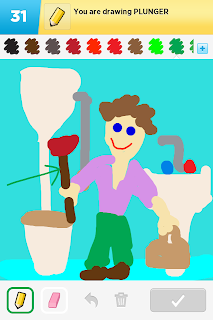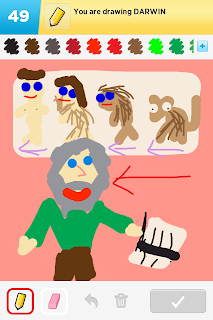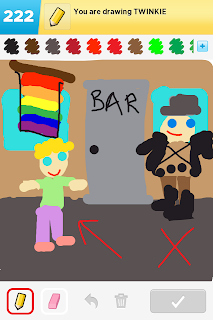Personal Issues with Nationalism
Here's my deal: I grew up in a British army family attending forces schools. If anyone was exposed to an obvious amount of nationalism (by Western standards of our time) it was me. We had the national anthem played before films in the cinema, saw the Union Jack flying all over the place, Remembrance Sunday (with a massive dose of national pride) was the only time we would go to Church etc. Mainly it had zero effect on me: I grew up pretty much indifferent to the whole thing, with no strong feelings either way.
 |
| My personal reaction: insert giant "meh" |
As I learned about Modern History, however, I started coming to the conclusion that nationalism was was really, fundamentally, a failed, damaging political concept. It was, in my view, one of the worst things to come out of the 19th century and wreaked utter destruction in the 20th. No doubt this came in large part from my also being half-German: the reaction in the once most aggressively nationalist country in Europe to the politics of extreme nationalism has pretty much been a complete rejection of the whole thing. It wasn't until the 2006 Fifa World Cup that I remember seeing German flags flying anywhere in the country, and then it was only for the duration of the tournament. I saw an old poem praising "Deutschtum" (Germanness) on a mural in a brewery in East Germany a couple of weeks ago and it sent shudders down my spine. There is definitely a sensitivity about this subject that is much stronger if you have a personal attachment to Germany.
A good example of my instinctive position was when I saw someone's profile a couple of months back on a dating site. It had a Union Jack on it and I instinctively thought "urgh" and wondered if he was a BNP or National Front supporter and blocked him. For a long time the flag had mildly aggressive, non-inclusive, and possibly racist overtones for me: I was well aware of the chant "There ain't no black in the Union Jack" (a crime against grammar as much as it is against the multicultural values I'd hope most of us possess). The Union Jack evoked Empire, colonialism and things I would rather weren't part of our history or present. I know there might be another reason why someone would want to put the Union Jack on their dating profile, but I just thought it smacked of "only white guys need reply" and didn't particularly want to find out if I were right or not.
 |
| EDL members protest against mosques. In Narnia. |
The Jubilee and the Olympics
Then in 2012 we had the Diamond Jubilee. I shoved up bunting on my cottage, at first as a bit of a piss take, and in an attempt to annoy wind up a few pals on Twitter, but this changed. Driving along I saw village after village decked out in Union Jacks in a way I didn't find threatening in the slightest. I know there was masses of negativity about the Jubilee celebrations on Twitter, but I perceived it more as the vast bulk of people in this country pulling together and marking, agree with it politically or not, a highly rare historical event.
Britain decked out in bunting looked a bit like France on Bastille Day: a sign of people celebrating over an event that was for the most part inclusive, happy and without militaristic overtones. I could have done without the pointless holiday on the Tuesday, but as a whole I loved the Jubilee and probably for the first time in my life, I loved seeing the Union Jacks. I found this fascinating.
 |
| @LassieOscar says "Yay for Bunting!" |
Next, and much more recently, came the Olympic opening ceremony. I watched it with mild horror at first, seeing people kneading bread and leading sheep around. I (like others I suspect) was full on expecting a car-crash of epic naff proportions - and what happened was an amazingly brilliant celebration of things British. Somehow Danny Boyle had managed to project an image of this country I was hugely proud of. I loved hearing the national anthem sung by the choir of deaf kids and I loved seeing our flag hoisted at the beginning of the games. My feed was filled with tweets from people I wouldn't really expect it of saying "For once I'm proud to be British".
What is Nationalism?
So what exactly is nationalism? I'm well aware that it really is quite a recent concept, and one that is a "social construct". We truly made this stuff up. It's really quite clichéd and obvious, but look down at the earth from a plane and you don't see borders. We've organised ourselves into nation states and did so quite recently at that.
 |
| Animal, Vegetable, Mineral, Pole or German? |
I find it genuinely amazing that no one really knows what "nationality", for example, the great Renaissance astronomer Nicholas Copernicus was. This was the man who dared to suggest, at risk of being burned as a heretic, that the Earth was not the centre of the universe. He was from Thorn, in the German speaking territory known as Royal Prussia, which at that time belonged to the Kingdom of Poland. No one actually knows what his native language was (he wrote in Latin). When a student in Italy, he belonged to a German speaking fraternity, but it is quite likely he spoke Polish and German with equal fluency. Professor Norman Davies concludes that like almost everyone of the time, he would simply have identified himself with his local home territory. If asked by a modern day person if he were Polish or German, he would have answered "neither". The Nobel literature prize winner Czesław Miłosz puts the question as an "absurd" projection of modern day concepts to a time when nationalism did not exist as we understand it.
Nationalism as a term wasn't even invented until 1770 and it originally was linked closely to the idea that people should rule themselves, generally in the form of a republic (think France and the newly born USA). Through much of the 1800s, it was an idea cherished by liberals: a non-xenophobic belief which sat easily with core liberal values of freedom, equality, tolerance, and the democratic rights of the individual.
 |
| Don't forget militaristic nationalism wasn't uniquely German, either.. |
Alas we're all familiar with the change in political nationalism that characterised the 20th century and that's where my and many others' objection to it stems from. When nationalism becomes believing that others are en masse worth less than you, because of an accident of birth or acquisition of a passport, you really can sod right off with it.
It seems to me to be an extended form of belonging to a cave or a clan and actually isn't even that logical. Do I have more "in common" with say an elderly, conservative member of a Presbyterian church in the Highlands, than a young, gay, veggie, urban professional in Amsterdam? Yes, the Scot and I are born on the same extended piece of dirt and speak the same language (ish), but that's really about as far as it goes. (I hardly need comment that despite supporting Team GB in the Olympics, the Scot may well regard himself as belonging to a different nation to me in any case.) The northern part of Germany where my mother grew up in has far more in common culturally with the part of the Netherlands just across the border (even down to the local dialects, which are startling similar) than to say Catholic Bavaria in the South. It's only been in the relatively recent period that the border was erected and people's "identities" became polarised in the concept of the nation state.
Team GB
So where does all this leave me? Essentially, the older I am, the more I realise that as much as we might like to take a stance on issues, things very rarely are black and white. Life really is many shades of grey. I could have a good go intellectually at arguing all the negative things about nationalism, but at the end of the day, emotionally I know it's not entirely honest.
 |
| Who wouldn't cheer on our Tom? |
Yes this stuff is made up, and I have no real reason to be cheering on Tom Daley (any gays reading this, shut it :p), but I will. I don't really care if the British, Australians or Germans get the most medals, but given I live here and carry a British passport it would be kinda nice if we did. I'd also be a bit dim to see that supporting Team GB in a sporting context, is quite different to demanding Muslims should leave our country because of extreme political nationalism.
When it comes to the display of the national flag, two recent examples have brought it home to me this really needn't be a bad thing at all. 2012: the year I finally realised it's okay to say "Yes, it's okay to be British" - meant most definitely it that 19th century liberal way.

















































